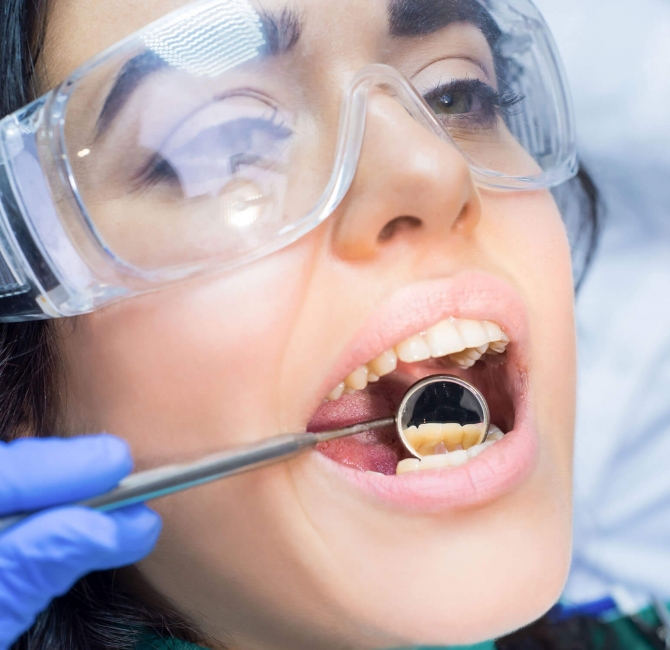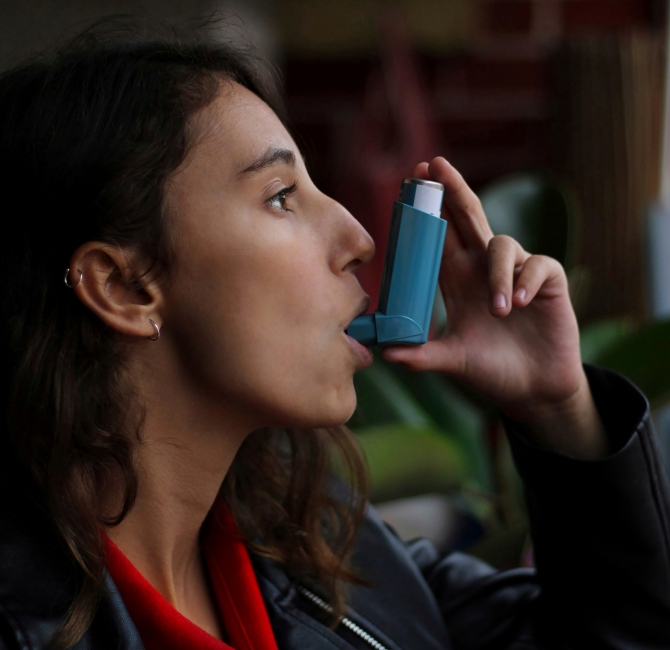Key messages:
- Oral health practitioners should be aware of the systemic factors that impact periodontitis and its treatment.
- Taking a comprehensive client medical and dental history, including current and past medications, is essential to determine the prognosis and outcomes of periodontal therapy.
- Smoking is a significant risk factor that adversely affects the prognosis and treatment outcomes of periodontal therapy.
- Periodontal therapy may require an interdisciplinary approach, especially for clients with multiple systemic factors.
Introduction
Periodontitis is the sixth most prevalent disease worldwide and the leading cause of tooth loss in adults. Several factors contribute to tooth loss, including client, tooth-related, systemic, and miscellaneous influences. This article discusses the systemic factors that can impact periodontitis and the success of periodontal therapy including, age, hypertension, sleep, nutrition, hematological disorders, smoking, obesity and metabolic syndrome, stress, and immunodeficiency.
Age
The prevalence of periodontitis increases with age. Older adults with periodontitis are at a higher risk of tooth and bone loss. The process of immunosenescence seen with aging can lead to a loss of proteostasis, telomere attrition, mitochondrial dysfunction, oxidative stress, cellular senescence, and altered epigenetic status. Inflammaging increases proinflammatory mediators, blood pressure, and glycosylated hemoglobin (HbA1c).
Hypertension
Hypertension and periodontitis are thought to be related bidirectionally, although the exact link has not yet been established. Research indicates that intensive periodontal therapy can lead to acute, short-term systemic inflammation and endothelial dysfunction. However, six months after therapy, endothelial function improves as a positive outcome of periodontal treatment.
Sleep
A bidirectional relationship has been proposed between sleep quality and duration and the severity and progression of periodontitis. However, the causative mechanism is not yet known. Sleep disturbances can adversely affect the immune system and may lead to systemic inflammation. Inadequate sleep may be linked to fewer teeth and periodontal disease. Obstructive sleep apnea (OSA) is associated with systemic inflammation, with periodontitis having a moderate to significant direct association with OSA.
Nutrition
Current periodontal therapies focus on reducing bacterial load to control the inflammatory process in the host. However, there is growing interest in the role of diet in decreasing inflammation and oxidative stress. Certain nutritional deficiencies may accelerate the rate and severity of periodontal disease progression, potentially leading to tooth loss.
While there is a lack of robust scientific evidence establishing a causal relationship between nutrition and periodontal prognosis, an increasing body of research suggests that diets that lower oxidative stress and have anti-inflammatory properties are associated with delayed periodontal disease progression and improved outcomes in periodontal therapy.
Hematological disorders
Some hematological disorders may increase the severity and progression of periodontal attachment loss, although the exact mechanisms are unknown. Defects in neutrophil migration, function, and neutrophil-associated homeostasis are significantly associated with periodontal breakdown. Periodontitis is associated with congenital neutropenia. Cohen syndrome, a condition characterized by neutropenia, is associated with increased and early periodontal breakdown.
Individuals with leukocyte adhesion deficiency syndromes experience recurrent infections, severe gingival inflammations, ulcerations, early onset rapid bone loss, and early loss of primary and permanent dentition. Congenital neutropenia and cyclic neutropenia are associated with a higher incidence of recurrent infections, oral ulcerations, and premature tooth loss. Cyclic neutropenia is associated with increased periodontal bone loss and a poorer prognosis in orthodontic and surgical periodontal treatment.
Smoking
Smoking is a grade modifier in periodontitis classification due to its detrimental effect on the initiation, progression, and treatment of periodontal disease. Nicotine is vasoconstrictive, which delays wound healing, including following periodontal therapy. The combination of nicotine and Porphyromonas gingivalis may lead to collagen breakdown and bone resorption. Smoking interferes with the inflammatory defence mechanisms of the periodontium and inhibits regenerative functions. Other ingredients in tobacco smoke can also interfere with healing. Smoking is associated with poorer outcomes in periodontal therapy and higher rates of refractory periodontitis. Similar trends occur in regenerative procedures and furcation lesion treatments.
Second-hand smoking exposes the oral cavity to toxins similar to those of active smoking, causing similar harm. Smoking substances such as cannabis, crack/cocaine, and methamphetamine are positively associated with the development and progression of periodontal disease.
Smoking cessation lowers the risk of developing periodontitis and periodontitis progression. Smoking cessation improves both nonsurgical and surgical periodontal therapy.
Obesity and metabolic syndrome
Metabolic syndrome is an interconnected collection of conditions, including central obesity, dyslipidemia, insulin resistance, and hypertension. The classic metabolic triad is a combination of hyperglycemia, hyperlipidemia, and hypertension. Collectively, these conditions increase the risk of developing cardiovascular diseases and type 2 diabetes.
Weight gain and obesity are risk factors for periodontal disease. In addition, systemic oxidative stress can elevate levels of reactive oxygen species, which can increase the inflammatory response and interfere with osteoblast differentiation. Individuals with obesity may also have a higher number of periodontal pathogens in the biofilm of their saliva.
Stress
Stress increases cortisol secretion and dysregulates the immune system. Activation of the autonomic nervous system can affect immune and inflammatory responses. Studies show the blood, saliva, and gingival crevicular fluid of individuals with periodontitis contains several stress markers that correlate positively with the severity of periodontitis. Stress increases periodontal inflammation, bone destruction, and tooth loss through various. Stress hormones also promote the growth of periodontal pathogens.
High financial stress and poor coping skills tend to accompany significantly higher alveolar bone and attachment loss compared to having lower stress levels. Compromised oral hygiene, lack of compliance with dental hygiene instructions, metabolic abnormalities, and increased smoking, alcohol, or substance use disorder accompany high indirect stress levels. Psychosocial stress and poor periodontal status may also be positively associated.
Immunodeficiency
A bidirectional relationship appears to exist between immune compromise and periodontal disease. The relationship is influenced by factors such as the host’s susceptibility and response to microorganisms and periodontal therapy. Immune deficiencies can compromise periodontal integrity, lead to gingival enlargement, impair hemostasis, and oral lesions due to opportunistic infections. Individuals with compromised immune systems are at a higher risk of local and systemic infections.
Summary
This article highlights the importance of thoroughly assessing the systemic history of clients who present with periodontal disease. Understanding the systemic factors that could influence the prognosis and effectiveness of periodontal therapy is essential. A multidisciplinary approach may be required to treat clients with one or more systemic factors.



